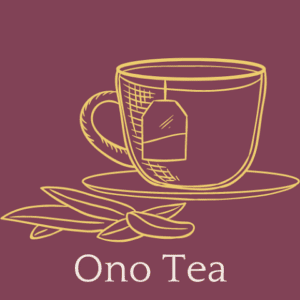Herbal teas have been cherished for centuries, not only for their delightful flavors but also for their ability to influence our well-being. Unlike traditional teas derived from the Camellia sinensis plant (like black, green, or oolong tea), herbal teas are infusions made from herbs, flowers, spices, and fruits. They’re naturally caffeine-free, making them an excellent choice for any time of day, and their diverse properties can help soothe, energize, or balance your mood.
Whether you’re feeling stressed, sluggish, or simply in need of a moment of calm, there’s an herbal tea out there to match your emotional state. But with so many options, how do you choose the right one? This guide will walk you through the process, exploring how herbal teas interact with your mood and offering practical tips to find your perfect brew.
Understanding the Mood-Tea Connection
Herbal teas affect our mood through a combination of their chemical compounds, aromas, and the ritual of preparation itself. Plants like chamomile, peppermint, and lavender contain active ingredients—such as antioxidants, essential oils, and flavonoids—that can influence the nervous system, reduce inflammation, or promote relaxation. The act of brewing and sipping tea also engages your senses, providing a mindful pause that can shift your emotional state.
Your mood is a complex interplay of physical, mental, and environmental factors. Are you feeling anxious after a long day? Do you need a boost to tackle a busy morning? Or perhaps you’re seeking comfort during a gloomy afternoon? Identifying your current emotional needs is the first step to selecting the right herbal tea. Let’s dive into some common moods and the teas that pair best with them.
Teas for Relaxation and Stress Relief
When life feels overwhelming, stress and anxiety can take a toll on both mind and body. Herbal teas with calming properties can help you unwind and restore balance.
- Chamomile Tea: Often dubbed the “queen of calm,” chamomile is one of the most well-known herbal teas for relaxation. Its mild, floral flavor comes from the daisy-like flowers of the chamomile plant, which contain apigenin, a compound that binds to receptors in the brain to reduce anxiety and promote sleep. Sip chamomile tea in the evening to ease into a restful night or during a stressful afternoon to quiet your mind.
- Lavender Tea: With its soothing purple buds and distinctive fragrance, lavender tea is a sensory treat. Lavender has been shown to lower cortisol levels (the stress hormone) and encourage a sense of peace. It’s particularly effective for those who find aromatherapy calming—inhaling the steam as you sip enhances the experience.
- Valerian Root Tea: For those needing deeper relaxation, valerian root is a potent option. Known for its sedative effects, it’s often recommended for insomnia or high anxiety. The flavor is earthy and slightly bitter, so you might blend it with honey or a sweeter herb like peppermint to make it more palatable.
Tip: Steep these teas for 5-10 minutes in hot water (just below boiling) to extract their calming compounds fully. Pair with a quiet moment—perhaps dim the lights or play soft music—to amplify the effect.
Teas for Energy and Focus
When you’re feeling foggy or fatigued, caffeine-free herbal teas can still provide a gentle lift by stimulating circulation, sharpening mental clarity, or refreshing your senses.
- Peppermint Tea: The bright, minty flavor of peppermint tea is invigorating on its own, but it also contains menthol, which can enhance alertness and improve focus. It’s a great choice for a mid-morning pick-me-up or when you need to power through a task without the jitters of caffeine.
- Ginger Tea: Spicy and warming, ginger tea boosts circulation and digestion, which can help combat sluggishness. Its zesty kick wakes up your senses, making it ideal for a post-lunch slump or a cold, dreary day when motivation is low.
- Rosemary Tea: Less common but equally effective, rosemary tea has a woodsy, aromatic profile. Studies suggest rosemary may improve memory and concentration, thanks to compounds like rosmarinic acid. It’s perfect for students, professionals, or anyone needing a mental edge.
Tip: These teas shine when served hot, but peppermint and ginger also work well iced for a refreshing twist. Keep steeping time shorter (3-5 minutes) to avoid overpowering bitterness, especially with rosemary.
Teas for Comfort and Emotional Balance
Sometimes, you’re not looking to fix a specific problem—you just want a warm hug in a mug. These teas offer comfort, uplift your spirits, or help you find equilibrium.
- Rooibos Tea: Hailing from South Africa, rooibos (pronounced “roy-boss”) has a naturally sweet, nutty flavor. Rich in antioxidants like aspalathin, it supports overall well-being and has a grounding effect. It’s a fantastic all-day tea for when you’re feeling scattered or melancholic.
- Lemon Balm Tea: With a light, citrusy taste, lemon balm is a mood-lifter. It’s part of the mint family and has been used traditionally to ease sadness and promote a sense of calm joy. Pair it with a touch of honey for an extra dose of coziness.
- Hibiscus Tea: Vibrant and tart, hibiscus tea is made from the deep red calyces of the hibiscus flower. Its bold flavor and color can feel like a burst of sunshine, making it a cheerful choice for dreary days. It’s also packed with vitamin C, which supports immune health—a bonus when you’re feeling under the weather emotionally or physically.
Tip: Experiment with blends—rooibos with vanilla, or hibiscus with rose hips—to personalize the experience. These teas can be enjoyed hot or cold, depending on the vibe you’re craving.
Teas for Digestive Harmony and Mood Stability
Your gut and mood are deeply connected—stress can upset your stomach, and digestive discomfort can sour your disposition. These teas soothe both.
- Fennel Tea: With a mild licorice-like flavor, fennel tea is a go-to for bloating or indigestion. By easing physical discomfort, it indirectly lifts your mood, helping you feel lighter and more at ease.
- Chamomile Tea: Yes, chamomile makes another appearance! Beyond relaxation, it’s a gentle digestive aid, calming an upset stomach and reducing tension that might be tied to gut issues.
- Licorice Root Tea: Sweet and earthy, licorice root supports adrenal health, which can stabilize mood swings caused by stress. It also soothes the stomach lining, making it a dual-purpose brew. (Note: Avoid if you have high blood pressure, as it can raise it.)
Tip: Sip these teas slowly after a meal or during moments of unease. Steep for 8-10 minutes to maximize their digestive benefits.
How to Choose Your Tea: A Step-by-Step Guide
Now that you know which teas suit different moods, here’s how to make the right choice in the moment:
- Assess Your Mood: Take a quick pause. Are you wired, tired, blue, or unsettled? Pinpointing your emotional state narrows your options.
- Consider the Time of Day: Calming teas like chamomile are best for evening, while energizing ones like peppermint suit mornings or afternoons.
- Match Flavor to Preference: If you hate bitter tastes, skip valerian and opt for sweeter rooibos. Love bold flavors? Hibiscus or ginger might be your pick.
- Experiment with Blends: Many herbal teas play well together. Mix lavender and chamomile for extra calm, or ginger and peppermint for a zesty boost.
- Trust Your Senses: Smell the tea before brewing. If the aroma feels right, it’s likely a good fit for your current vibe.
- Quality Matters: Opt for loose-leaf teas or high-quality tea bags from reputable brands to ensure potency and purity. Organic options reduce exposure to pesticides.
Enhancing the Experience
The ritual of tea-drinking can amplify its mood benefits. Use a favorite mug, set aside distractions, and focus on the warmth, scent, and taste. Add natural sweeteners like honey or a splash of fruit juice if desired, but keep it simple to let the herbs shine. For an extra layer of mindfulness, try a short breathing exercise while the tea steeps—inhale for four counts, exhale for six—to align your body and mind.
Listening to Your Body
Everyone responds to herbs differently. If a tea doesn’t feel right—perhaps it makes you jittery or doesn’t sit well—switch it up. Pregnant or nursing individuals, or those on medication, should consult a healthcare provider, as some herbs (like licorice root or valerian) can interact with conditions or drugs.
Final Thoughts
Choosing the right herbal tea for your mood is both an art and a science. It’s about tuning into yourself, exploring flavors, and embracing the gentle power of nature in a cup. Whether you’re seeking calm with chamomile, a lift with peppermint, or comfort with rooibos, there’s a brew to match every emotion. So next time you’re feeling off, don’t just reach for any tea—pick one that speaks to your soul. With a little practice, you’ll become your own tea sommelier, crafting moments of balance and joy, one sip at a time.

